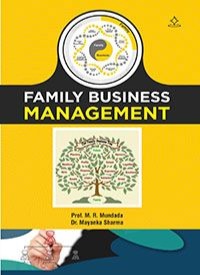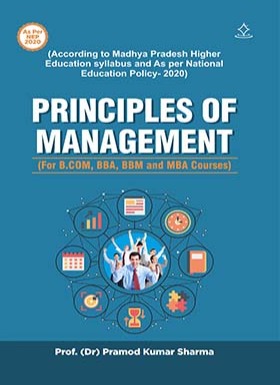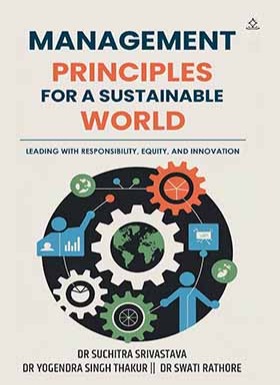


ISBN : 978-93-90761-40-1
Category : Academic
Catalogue : Economic Finance and Business Management
ID : SB20110
Family Business Management
NA
Dr. Mayanka Sharma and Prof. M. R. Mundada, Chairman
Paperback
520.00
e Book
150.00
Pages : 262
Language : English
About Book
Family businesses are additionally called family enterprises. It is the most famous type of big business in the world. In the US, family businesses contribute half of the total national output and give for the most part openings for work. In Germany, family businesses contributed 66% of GDP and represented 75% of the work in 2008. Additionally, in Britain, family businesses represent half of the business enterprises. Additionally, larger part enterprises in creating nations are family businesses. In the in the mean time, as Introduction part characterized previously, there is 85.4 percent of private-sector enterprises in India were delegated family businesses. In this book we have examined the importance of Family Business Management among various individuals. In Chapter 1 we have given a basic introduction of Family Business followed by their characteristics, their role and Modes of Transmission.. In Chapter 2 we have talked about ideational model and their factors. We have also discussed about their variable and how it’s effective in family business. So in Chapter 3 we have discussed about Women Entrepreneurship in family Business. We have also discussed about women entrepreneurship developments and traits in India. In Chapter 4 we have talk about the Family Business Management of the perspective of Adolescents and the consequence while they are used to working in family business. In chapter 5 we have talk about Interesting scenario of Family Business. In Chapter 6 we have talked about the Family Business planning, needs, benefits, process, challenges, and their obstacles we have also discussed about the trend of Family business in India. In Chapter 7 we have talk about the encouragement of family Participating and also discussed about the family life cycle. Whereas in chapter 8 we have talked about identifying the next generation of managers and leaders and also discussed about the Ownership Education Programs.
Customer Reviews





